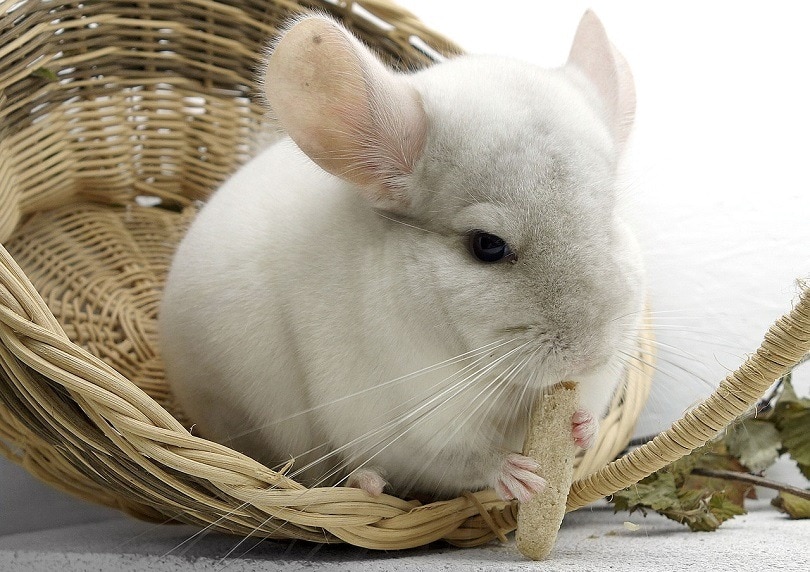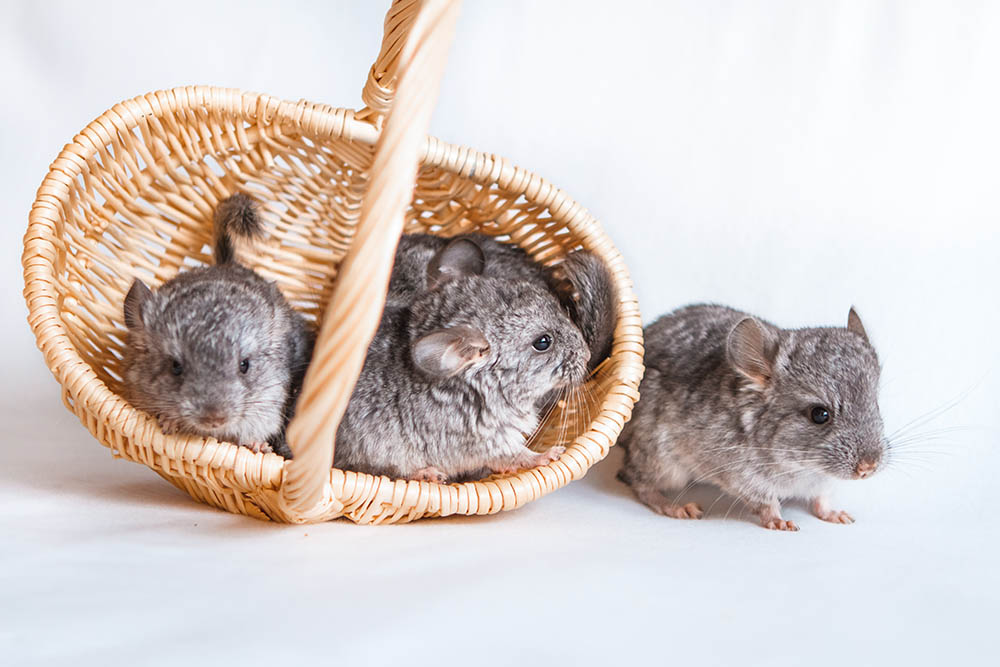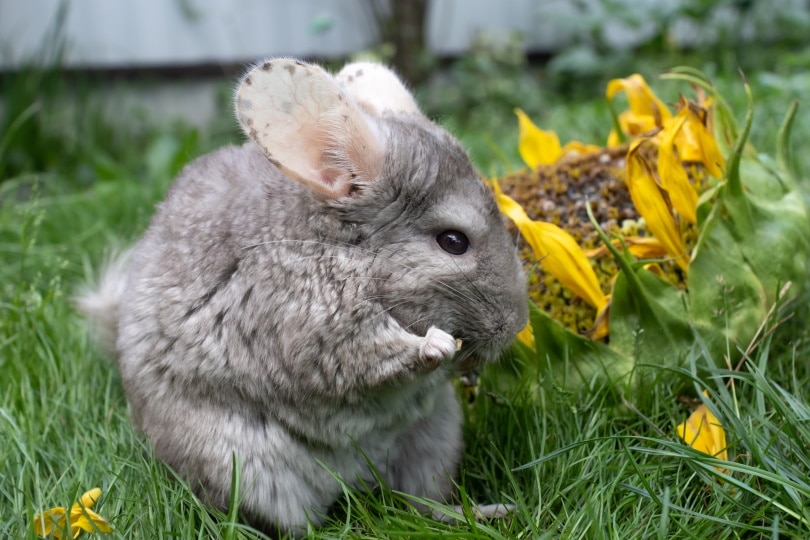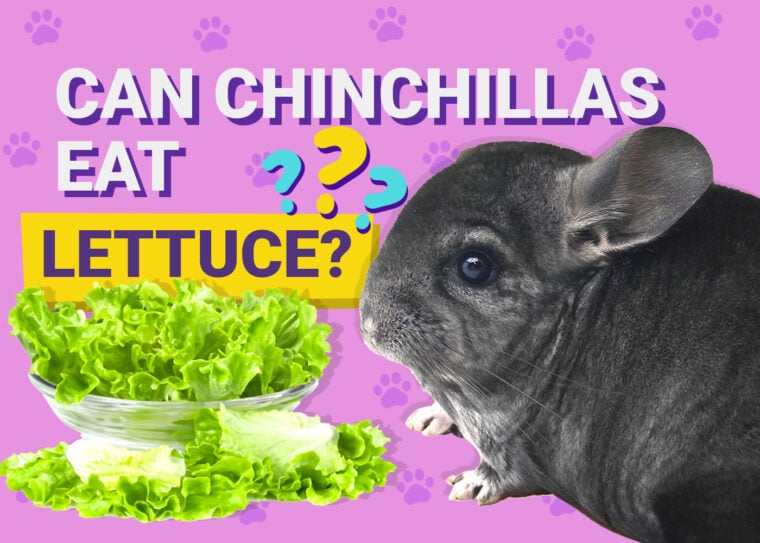
If you’re lucky enough to own a chinchilla, you know that their diet is one of the most important aspects of keeping them healthy. While you may be providing them with commercial chinchilla food to help meet their dietary needs, did you know that you can also feed them fruits and vegetables occasionally?
Chinchillas eat plants in the wild, so plant-based foods such as vegetables are actually a key part of your chinchilla’s diet. But not all vegetables are safe for chinchillas. However, some of the best vegetables that are definitely safe for chinchillas are leafy greens, including lettuce.
But this type of food should make up no more than 10% of your pet’s diet because it doesn’t contain all of the essential nutrients they need. You shouldn’t give lettuce to your chinchilla every day, usually just once or twice a week depending on the type of lettuce.
It’s worth noting that since there are different varieties, not every type of lettuce is safe for your chinchilla. Don’t just buy whatever lettuce you see first at the store. Knowing which types of lettuce are safe is key to keeping them healthy. We’ll help you learn which ones they are in this article.
Why Is Lettuce Good for Chinchillas?
Before we get into why lettuce is good for chinchillas, here’s a little disclaimer. It is not meant to be a replacement for your chinchilla’s normal diet. Pellets and hay are still the most important thing that you should be feeding your chinchilla, as they provide the most nutrients for your pet as well as aid in digestion.
Rather, lettuce should be used only occasionally in order to supplement your chinchilla’s diet and enhance the health benefits he receives from food. Think of it as a once or twice a week treat, just like you would give a dog. But if you’re still on the fence about it, let’s look at some of the reasons that the occasional piece of lettuce is okay.

To Offer Them Variety
As humans, we get tired of eating the same foods all the time. We like to change it up a bit. The same is true for chinchillas; they don’t necessarily eat the exact same food in the wild every day, so why should pet chinchillas have to?
Lettuce can add variety to your chinchilla’s diet and give them a taste of something new every once in a while. And by giving them fresh lettuce, you are closely resembling some of the fresh plants that they would eat in the wild.
To Provide Additional Nutrients
Pellets are formulated to provide all of the essential nutrients that a chinchilla needs to stay healthy. But feeding them lettuce can provide them with different or higher concentrations of nutrients that they wouldn’t necessarily get from pellets.
Some of the nutrients that are found in lettuce include vitamins A and K. Vitamin A can help keep your chinchilla’s vision healthy and support his immune system as well, helping to prevent him from getting sick. Vitamin K is important for keeping a chinchilla’s blood, heart, and bones healthy.
But these nutrients are not necessarily needed by your pet in high doses, as their body also makes them naturally. That factor, combined with the fact that some lettuce is high in acidity, is why it shouldn’t be given to your pet every day.
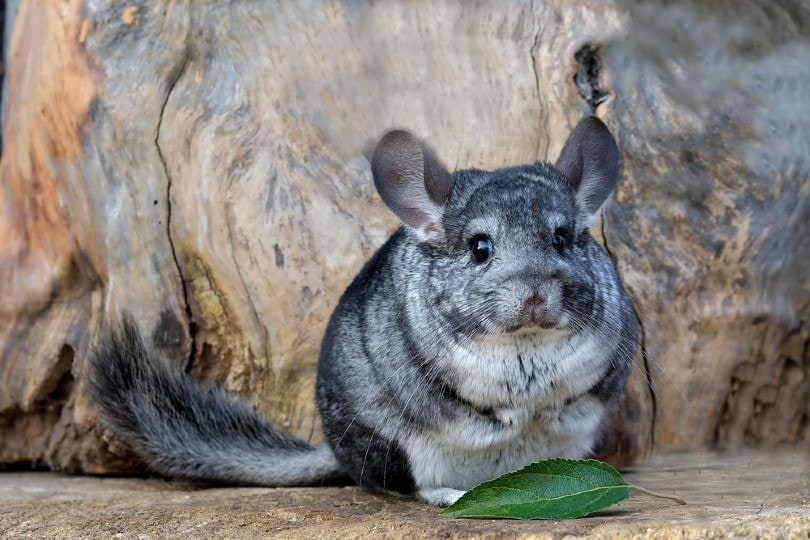
To Increase Water Intake
Lettuce is made up of up to 96% water, so occasionally feeding lettuce to your chinchilla can help increase their water intake and help them stay hydrated. Water also helps to aid in digestion and can help keep your pet’s urinary system healthy.
To Give Them Something to Nibble
A chinchilla has teeth that are constantly growing. Nibbling and gnawing on different foods helps to keep their teeth healthy and prevents them from growing out of control. A piece of lettuce is the perfect “nibble food” that will keep him busy and entertained while it provides the other benefits mentioned above. Plus, it’s adorable to watch a chinchilla while he nibbles on anything.
What Types of Lettuce Are Safe for Chinchillas?
There are concerns that eating lettuce can negatively affect your chinchilla’s health. Some varieties are high in calcium and oxalates, which can build up in your pet’s urinary system, leading to urinary stones. These can cause serious problems, which is why it is important that you only feed your chinchilla lettuce varieties that have a lower concentration of calcium and oxalates.
The best type of lettuce that you can feed your chinchilla is red leaf lettuce. Not only does it contain the highest concentration of vitamins A and K, but it also contains the lowest amount of calcium and oxalates. It also has a low fat content, so it can be given up to twice a week at most.
Bibb lettuce is also low in calcium and oxalates. But, it has a higher sugar content than red leaf lettuce so it shouldn’t be given as often. The same is true for Boston lettuce, so these two types should only be given to your chinchilla once per week.
Finally, green leaf lettuce is also low in calcium and oxalates. But of the types of lettuce that are safe for chinchillas, this one is the most acidic. A very small amount given to your chinchilla no more than once a week will keep him safe.

What Types of Lettuce Should Be Avoided?
It is not a good idea to give your chinchilla cabbage, iceberg lettuce, or romaine lettuce. Cabbage and iceberg lettuce contain the highest amount of water. This can cause your chinchilla to retain some of that water, which contributes to bloating in his stomach. This can interfere with his digestion.
Romaine lettuce is the most unsafe type of lettuce to give a chinchilla. It isn’t necessarily toxic, but it contains high amounts of fat and calcium and also has high acidity. This can cause tummy troubles, digestive issues, bloating, and potentially urinary stones, especially if it is fed to your chinchilla in high amounts.
Can All Chinchillas Eat Lettuce?
Giving lettuce to a healthy chinchilla should not cause any problems as long as you give them the right kind and amount. However, it’s not a good idea to give lettuce to a chinchilla that is already suffering from digestive issues without talking to your veterinarian first.
Even if you do give lettuce to your chinchilla, it’s a good idea to introduce it slowly at first so that you can make sure their body processes it correctly. Feed your chinchilla only about 1 teaspoon of torn-up lettuce once a week the first few times, then watch your pet and monitor their poop for a few days afterward to make sure that it was digested properly.
As long as your chinchilla’s poop continues to look normal, you can continue to give him lettuce occasionally. But, you should still only give him about 1 to 2 teaspoons once or twice a week in order to supplement his diet properly.

See Also: 12 Fascinating & Fun Chinchilla Facts You Never Knew
In Summary
The occasional bite of red leaf or green leaf lettuce is totally safe for your chinchilla and can be a good supplement to his usual diet of hay and pellets. But remember that vegetables should make up no more than 10% of a chinchilla’s diet, so lettuce shouldn’t be given all the time.
It’s best to only give your chinchilla lettuce once or twice a week. This is because lettuce is higher in some vitamins and minerals than commercial chinchilla foods. You don’t want to overdo it or give your pet the wrong type of lettuce, as this could negatively affect his health. It’s still a good idea to consult with your vet to make sure that giving lettuce to your chinchilla will be safe.
- Related read: Can Chinchillas Eat Almonds? What You Need to Know!
Featured Image Credit: Jef Wright, Unsplash


